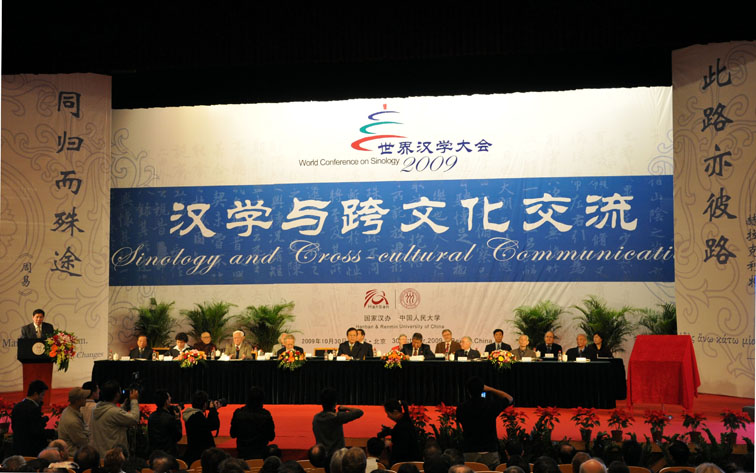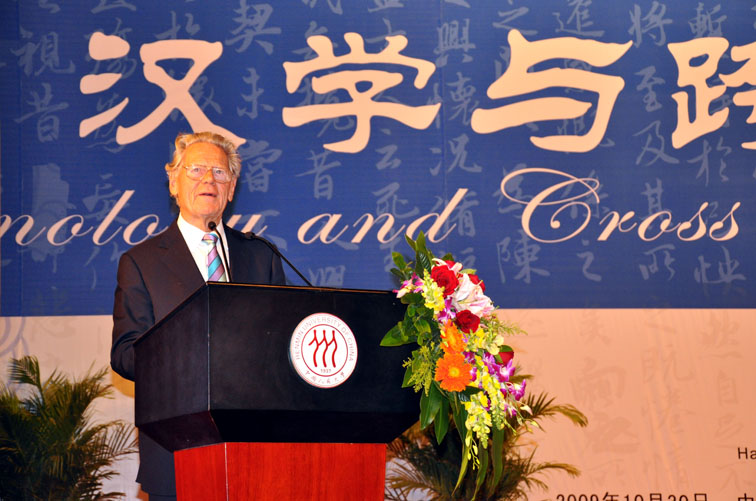Second World Sinology Conference Concludes in Beijing
2016-09-09

Sinology is the study of Chinese history and culture through Western research methods, academic traditions and cultural perspectives. With the theme of Sinology and cross-cultural communication, the second World Conference on Sinology 2009 concluded in Beijing yesterday. Chen Zhe has more.
Aimed at promoting exchanges and cooperation in the international study of Sinology and highlighting the value of Chinese culture in building a harmonious world, the World Conference on Sinology 2009 hosted over 160 well-known Sinologists from prestigious universities. Li Xueqin, a historian from China's Tsinghua University, introduced the origin of Sinology.
"Sinology is a result of cross-cultural communications, and the study of it will further promote that communication. It came into being in the 16th and 17th century when Chinese culture and Western culture met each other. People from both sides were keen on learning about each other. Sinology was developed in Western countries on the subjects of Chinese history, culture, language, etc. Meanwhile, Western learning, a late Qing Dynasty term for Western natural and social sciences, was developed in China."

Chinese scholars have become more interested in Sinology since the 1980s, increasingly carrying out exchanges and dialogues on the Chinese mainland and overseas. The trend of Sinology, which is deeply-rooted in China but stems from overseas, plays an increasingly important role in the world's cultural development.
Professor Carine Defoot is a famous Sinologist from the University of Leuven in Belgium.
"I felt a lot about reaching the same goal by different means. Though we may study by different methods, we are here to communicate and reach mutual understanding. "
In recent years, exchange between researchers and scholars in China has increased and many classical Chinese literature and philosophy texts have been translated into foreign languages to facilitate academic research. Michael Loewe from the University of Cambridge was a co-author The Cambridge History of Ancient China, a companion volume of The Cambridge History of China.
"I think it's a source of great enrichment. I'm very glad now that it is possible for this cross-cultural exchange to take place. I've seen it's been growing in my whole life. I started in Sinology fifty years ago. Now things are very different. There is being immense progress and development."
The three-day World Conference on Sinology included several group discussions, including "Sinology and Cultural Dialogue," "Sinology and Historical Research," "Sinology and Chinese Literature," and many others. The conference was co-sponsored by the Chinese Language Council International and Renmin University. The first conference was held in Beijing in 2007.
(Source:http://english.cri.cn/4406/2009/11/02/1701s526347.htm)